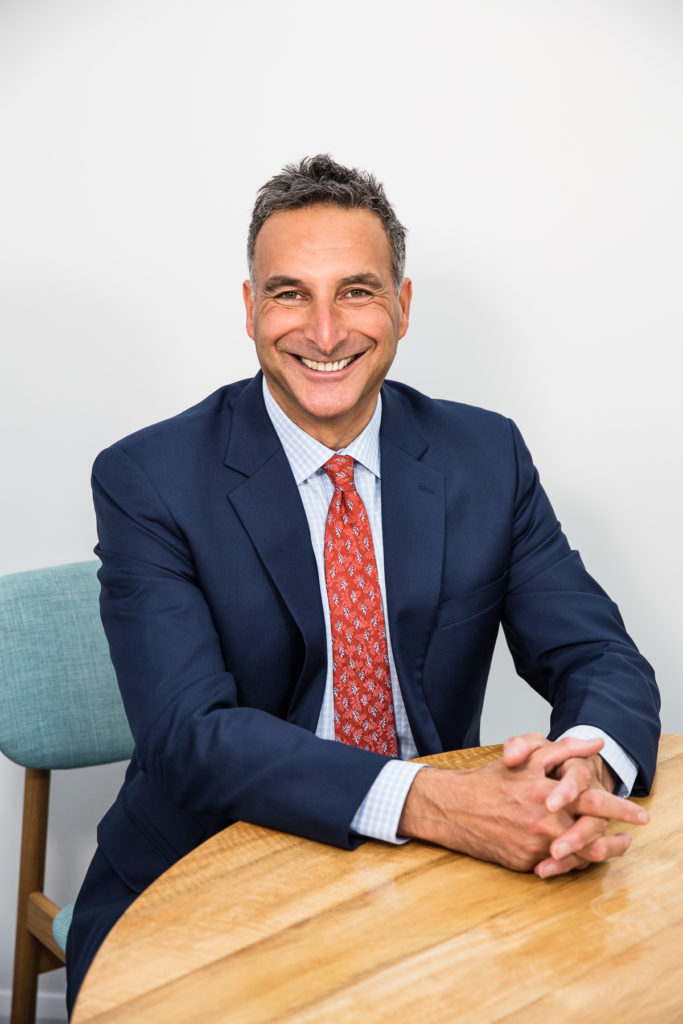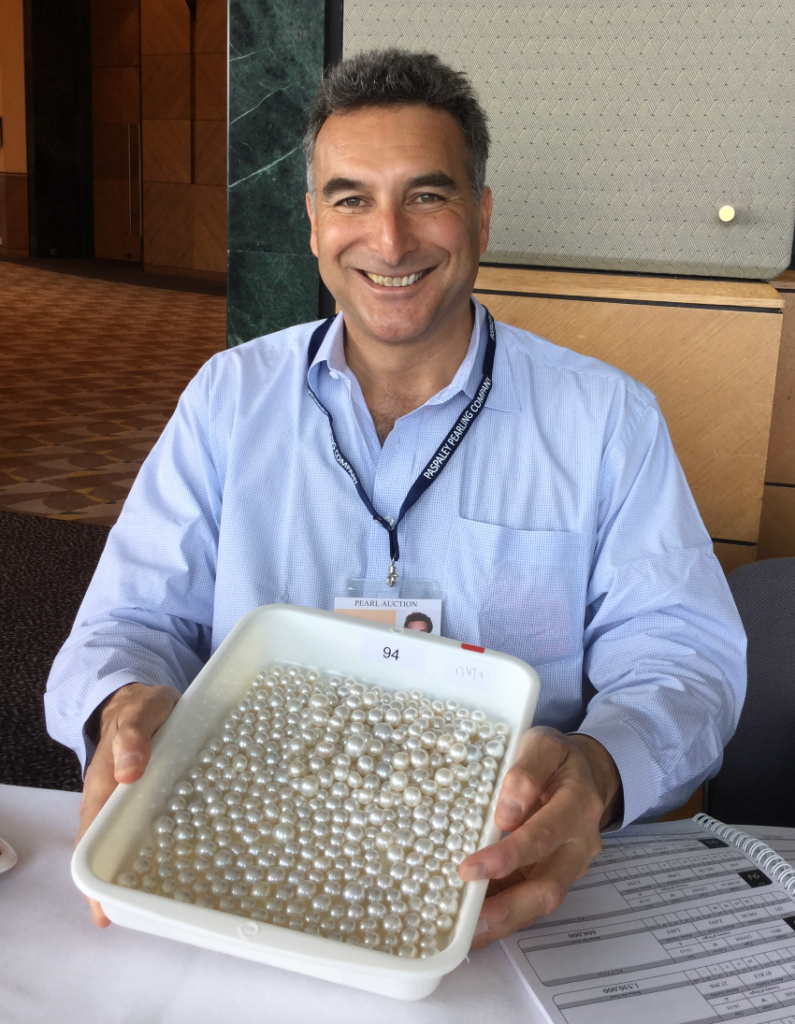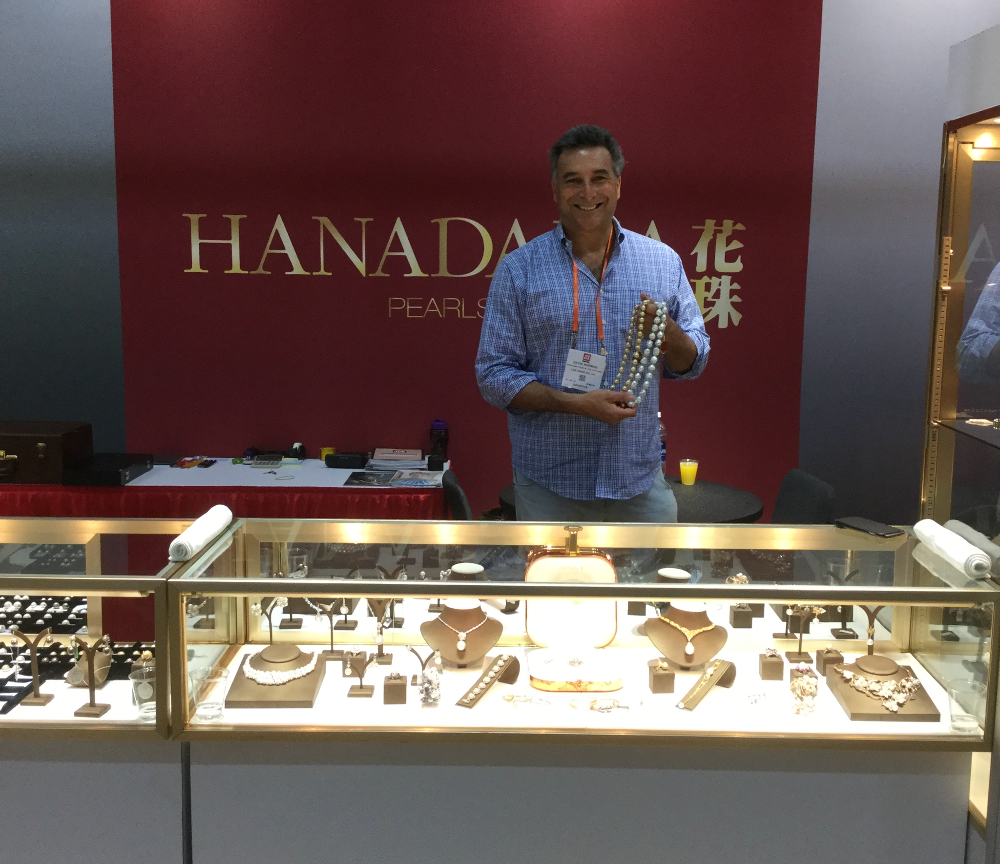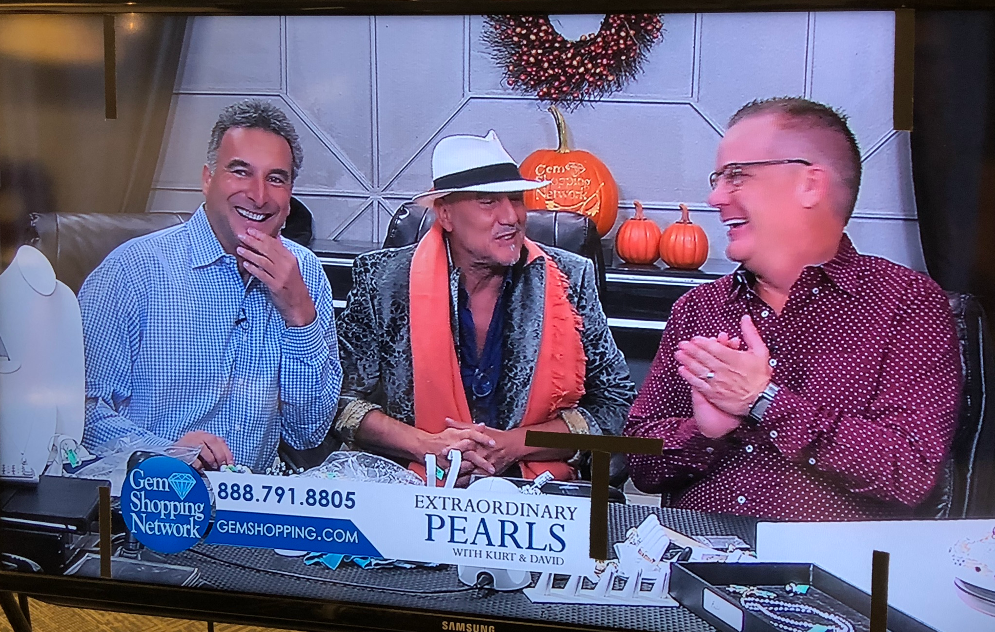David was born in London into a fifth-generation pearl trading family that had a reputation spanning the South Ocean, Australia, and the UK. He evolved the family trade with the times, expanding his family’s wholesale business into online, retail, and TV shopping, with his own business, Aquarian Pearls. But when he was young, David just wanted to be an actor.

David, owner of Aquarian Pearls
David’s father was concerned that he wouldn’t be happy in a profession such as acting, which might result in little money and little work. So he made David a deal – learn the pearl business while he was studying to be an actor, so he at least had something to fall back on.
David instantly fell in love with the pearl industry.
He enjoyed working at his dad’s office and all the interesting characters in the industry. One of these characters was a family friend who owned a pearl business in Tokyo. He offered David an opportunity to work with him in Japan.
David jumped at the opportunity and left for Japan for two years. During his time there, he learned more about the industry, built connections, and was subsequently offered a new role in Australia.

David’s father, Boris with crew at Thursday Island, ca 1970, harvesting South Sea Pearls
“I thought what the hell, I’ll come to Australia! My dad had always wanted to emigrate to Australia, but my mum had wanted to stay in England.”
His dad encouraged him to take the opportunity. So he took the job and traveled around Australia selling Japanese pearls.
At the age of 23, David saw an opportunity to start his own business.
He discovered special pearls in Broome in West Australia, which had been farmed and cultured since 1959. At that time he was buying direct from farmers and selling them to local retailers, much like his family had done with natural pearls for the last four generations.

David at the Paspaley Pearl Auction in Hong Kong
At 25, David returned to England to renew his visa. Fortuitously, this coincided with a boom in the industry so he had both the time and money to invest in acting school while he waited for his visa.
But David couldn’t get acting off his mind.
He managed to get himself a part in A Midsummer Night’s Dream. He was excited to finally be getting to act in a real play. But in the lead-up to opening night, David had a realization.
“I thought: I don’t want to be an actor – I want to be a pearler! I really only wanted to be an actor because I wanted people to like me, but I realized that I really loved the pearls and I was never ambiguous about it [the pearl business] again.”
This was a defining period of David’s life. It solidified what he wanted to do: continue in the pearl industry.
Although he eventually settled into the family business, David is no stranger to changing with the times.
Over the years he has had to adapt his business model.
Traditionally, all the important dealers in the pearl business bought at trade fairs. For many years David had exhibited across the world from Las Vegas to Hong Kong. Hong Kong being especially important in the world of jewelry as it’s a duty-free port.

David at a Las Vegas Pearl Show
“You’d have up to four thousand exhibitors bringing all sorts of jewelry, gold, silver, diamonds, rubies, pearls, emeralds, colored stones, cutting equipment, everything connected to the jewelry business, and all the world’s jewelers would go there but a lot because it’s so near to Sydney and it’s so cheap to fly in recent years. A lot of our customers would go and spend their pennies at the trade fair.”
As the years progressed, he found more and more wholesalers were trying to buy their pearls from the source – cutting out the middleman trader, and thus, his markup. Accounts began to dwindle.
David had to make the difficult decision to minimize the B2B side of the business and go into retail himself.
“It really was a necessity of survival. It wasn’t the preferred course of action and some of our retail clients didn’t like it at all, but they were buying so little that we couldn’t really sustain a business on that. So that’s really why we’ve worked so hard on building a proper retail business.”
For generations, David’s family had supplied retail stores ‘the old-fashioned way,’ so moving into retail was a huge change. David said it was almost like going against his DNA.
Suddenly, he found himself in competition with the same retailers he had worked with for years.
But at that time he felt he had no choice. Today, his B2B profits don’t even make up two-and-a-half percent of his business. “There is part of me that feels sort of old-fashioned guilt or something.” But he did what he had to do, and business is thriving as a result. David says he’s seeing a global shift towards the consumer.
Adapt or die is a business strategy David very much agrees with.
Another significant pivot has been into the world of television shopping. Previously this was a world he knew very little about, but he’s learning how lucrative it can be.
“Essentially you’re in one studio with your wares and you’re offering them to the television networks clients, so you get around the whole country from one studio and it’s fantastic.”
Ultimately, David confesses that he just loves pearls. TV ended up being the perfect platform for him, as he is obsessed with bringing beautiful pearls to the general public. David’s business has shifted from supplying retailers to the finished jewelry business. He now sells directly to consumers, largely due to the shift to TV shopping.

David appearing on a US TV Network selling pearls
“TV companies demanded earrings, pendants, rings, necklaces, and the whole gamut. The deal with TV shopping is the client has the absolute right to return within a certain time period. So although you do sell a great number of goodies you get back at least 25%.”
David stands by the saying “Necessity is the mother of innovation.”
Returned jewelry can’t be sold again on the same TV network, so David needed another sales outlet for his finished pieces. He decided to open a store.
Over the last two to three years, David has seen great success with the finished jewelry. He credits the internet for this success which is a channel they are now heavily focusing on, producing products specifically for the online market.
The company has been working hard to grow its online presence. David has been using Facebook, Instagram, Google Ads, writing SEO articles to get his name out there.
He also writes a series of interviews with influential people in the jewelry business. This helps to build Aquarian Pearl’s profile as an outstanding pearl supplier. David is using his contacts in the industry to speak to high-profile farmers in Australia, French Polynesia, and Japan. He’s also able to share unique insights from farmers in Tahiti, where they make the black pearls, and the Philippines, where they make golden pearls.
…
David put his own spin on a five-generation family business in pearls. David changed with the times as his customers began to go to the trade shows to seek pearls direct from the source. Now, his business Aquarian Pearls sells finished jewelry from his boutique in Sydney, and all across the USA and Australia on television shopping channels.
Merchant Stories: Real entrepreneur stories from real people. If you’d like to share your merchant stories, email us.


